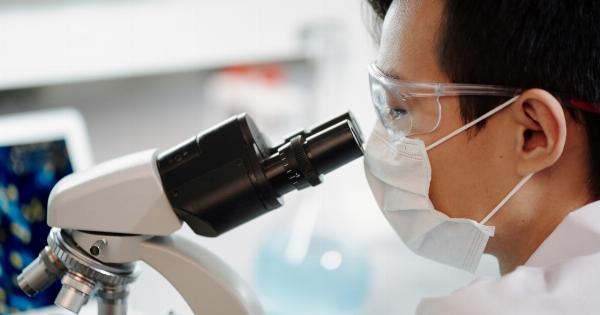Colon cancer, also known as colorectal cancer, is one of the leading causes of cancer-related deaths worldwide. According to the World Health Organization (WHO), around 1.8 million new cases of colorectal cancer were reported in 2018 alone.
While several risk factors contribute to the development of colon cancer, recent research has unveiled a potential link between the bacteria residing in our colon and the onset of this deadly disease. This article explores the fascinating connection between colon bacteria and cancer, shedding light on groundbreaking discoveries and their implications for future prevention and treatment strategies.
The Human Microbiome: An Intricate Ecosystem
The human body is home to trillions of microorganisms, collectively known as the microbiome.
These microorganisms, including bacteria, viruses, fungi, and other microbes, inhabit various parts of our body, such as our skin, mouth, gut, and reproductive organs. The gut, particularly the colon, harbors a complex microbial ecosystem with diverse bacterial species. While some of these bacteria are beneficial and aid in digestion and nutrient absorption, others can be potentially harmful.
The Role of Bacteria in Colon Health
Several studies have emphasized the critical role of a healthy gut microbiome in maintaining overall colon health.
The beneficial bacteria in our colons assist in numerous crucial functions, including the synthesis of essential vitamins, strengthening the immune system, and preventing the colonization of harmful pathogens. A balanced and diverse bacterial community is essential for maintaining the integrity of the colon’s lining and preventing inflammation.
Gut Dysbiosis and Colon Cancer
Gut dysbiosis refers to an imbalance in the gut microbiome, with an overgrowth of harmful bacteria and a decline in beneficial ones.
This disruption in the microbial ecosystem has been linked to various gastrointestinal disorders, including inflammatory bowel disease, irritable bowel syndrome, and potentially colon cancer. The exact mechanisms underlying the connection between gut dysbiosis and cancer development are still being explored by researchers worldwide.
The Influence of Bacterial Metabolites
Recent studies have highlighted the role of bacterial metabolites, the compounds produced during the metabolism of bacteria, in colon cancer development. One such example is the production of short-chain fatty acids (SCFAs) by certain gut bacteria.
SCFAs, particularly butyrate, play a crucial role in maintaining the health of colonic cells and reducing inflammation. However, dysbiosis can result in reduced SCFA production, leading to an increased risk of colorectal cancer.
Implications of Inflammation and Immune Responses
Chronic inflammation is a well-known risk factor for cancer development, including colon cancer. Studies have linked alterations in the gut microbiome to increased inflammation within the colon, which can promote carcinogenesis.
Furthermore, certain bacterial species have been found to stimulate immune responses, triggering the release of pro-inflammatory molecules and further contributing to the inflammatory environment that supports tumor growth.
The Role of Specific Bacterial Species
Researchers have identified specific bacterial species that may play a role in colon cancer initiation and progression. For instance, Fusobacterium nucleatum, a common oral bacterium, has been found in higher abundance within colorectal tumors.
This bacterium possesses unique characteristics that enable it to adhere to colonic cells and promote tumor development. Other bacteria, such as Bacteroides fragilis and Escherichia coli (E. coli), have also been associated with colorectal cancer.
Modulating the Microbiome for Prevention and Treatment
Given the growing evidence linking the gut microbiome to colon cancer, researchers are exploring ways to manipulate the microbial community to prevent and treat this disease.
One promising avenue is the use of probiotics, live beneficial bacteria that can be consumed to supplement and restore the gut microbiome’s balance. Probiotics have shown potential in reducing inflammation, improving gut barrier function, and minimizing the risk of colon cancer.
Another approach involves the use of prebiotics, which are dietary fibers that serve as nutrition for beneficial bacteria.
By consuming prebiotic-rich foods or supplements, individuals can selectively promote the growth of beneficial bacteria, creating a healthier gut environment. This, in turn, may help reduce the risk of colon cancer and other gastrointestinal diseases.
Future Directions and Challenges
While the link between colon bacteria and cancer is becoming clearer, several challenges remain in establishing definitive causality and understanding the intricate mechanisms involved.
Factors such as individual variation in microbial composition, dietary habits, genetics, and environmental influences make it challenging to identify a one-size-fits-all approach.
Future research will likely focus on unraveling the complex interactions between bacteria, host genetics, and diet in colon cancer development.
Additionally, investigating the use of personalized medicine approaches to modulate the microbiome and developing targeted therapies that leverage the understanding of microbial metabolites and their impact on colon health holds great promise in the fight against colon cancer.
Conclusion
The emerging research on the link between colon bacteria and cancer opens up new possibilities for understanding, preventing, and treating colon cancer.
The complexity of the gut microbiome and its role in human health is undeniable, with evidence suggesting a crucial influence on colon cancer development and progression.
Further exploration of this fascinating connection will undoubtedly contribute to the development of innovative strategies that harness the power of our gut bacteria for improved colon health and ultimately, a brighter future in the battle against colorectal cancer.































